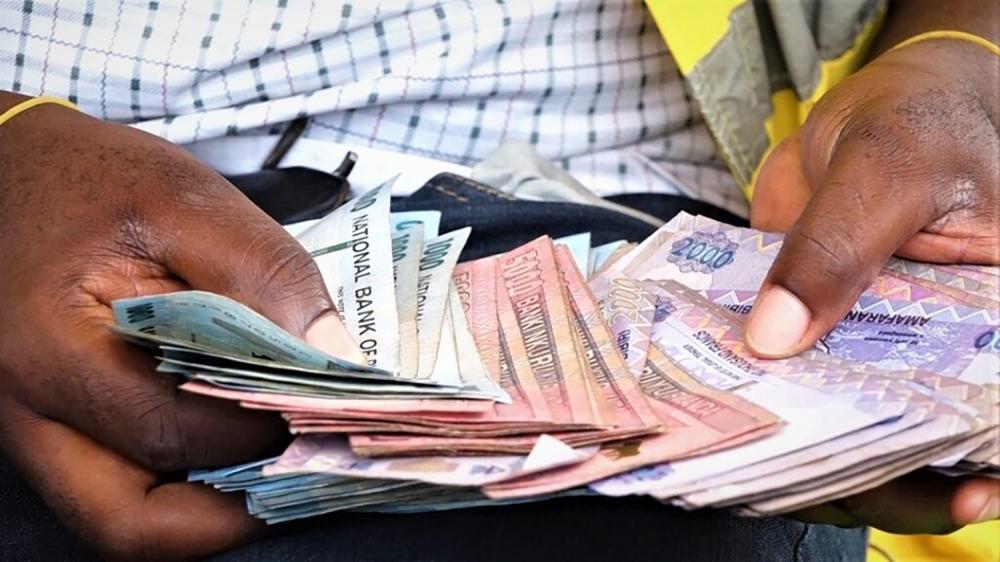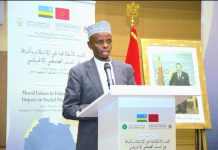Jesca Mutamba
Africa-Press – Rwanda. Two public officials, Maurice Habiyambere of NAEB and Clement Ingabire of the City of Kigali, were arrested last week over suspected money laundering and illicit enrichment. Habiyambere’s arrest was directly linked to a false asset declaration to the Ombudsman, while the connection in Ingabire’s case has not been confirmed as such.
These arrests have renewed public interest in understanding who can be investigated for such offenses, what triggers the investigations, and what happens when a person cannot reasonably explain their wealth.
Who is required to declare assets?
The obligation to declare assets is governed by Rwanda’s 2021 asset declaration law, which mandates public officials to submit their declarations electronically to the Office of the Ombudsman each year, no later than May 15.
This requirement applies to a wide range of government employees, including senior leaders such as the President, Prime Minister, Ministers, Permanent Secretaries, parliamentary leaders, heads of the judiciary, and other top-level public officials.
The law also extends to members of the Rwanda Defense Force and the national police, correctional service personnel, judges and prosecutors, investigators, political organisation staff, public servants who handle finance and state property, public notaries, and local administrative leaders such as sector and cell executive secretaries.
Declarations must include the types and values of assets, their sources and locations both within Rwanda and abroad, and the time of acquisition.
Additionally, individuals must declare assets belonging to their spouses, if married under community of property or limited community of property regimes, as well as assets of any children under the age of 18.
Jean Pierre Nkurunziza, Advisor to the Chief Ombudsman, emphasised that the law on corruption and asset declaration grants the Ombudsman full authority to access information relevant to related cases, including financial records, whether or not the person is legally obligated to declare.
“Whether the person is compelled by law to declare, is related to someone who is, or is a suspect in a crime, the Ombudsman has the authority to access information from banks and other sources if suspicion arises over their wealth,” Nkurunziza said.
“Suspicion may result from inconsistencies in declared assets, alerts from banks, whistleblower tips, or other sources pointing to a mismatch between income and lifestyle. Investigations can also be triggered by an individual’s institution due to internal financial concerns. However, cases involving non-declaring individuals are generally followed up by RIB.”
He added that sometimes people connected to declarants such as parents, relatives, or friends, may be involved when assets are registered in their names to conceal the true owner’s wealth.
The officials within the Office of the Ombudsman who work in finance, property, corruption prevention, or leadership monitoring must declare their assets to the Bureau of the Senate, in adherence to strict anti-corruption protocols.
Consequences of non-compliance
The law provides flexibility for individuals who declare with errors or face unavoidable delays, such as being on official missions abroad. In such cases, they are given additional time to correct or submit their declarations.
However, if a person fails to comply with the law, declares only part of their assets, or cannot reasonably explain the source of their wealth, raising suspicions of illegal acquisition, the Office of the Ombudsman or the Bureau of the Senate submits a report to the criminal investigation authorities to initiate a formal probe.
What about non-declaring individuals?
According to RIB spokesperson Thierry Murangira, the institution has the mandate to prevent and investigate crimes and can initiate a case at any time with the approval of the bureau’s Secretary General. This includes investigations involving individuals who are not required to declare their assets.
“We have the authority to launch investigations at any time, whether prompted by a filed case or initiated independently, depending on the situation and RIB’s role in crime detection,” Murangira said.
The Office of the Ombudsman works in close collaboration with various institutions in its efforts to combat corruption and financial crimes. These include financial institutions such as banks, the Rwanda Financial Intelligence Centre, the National Bank of Rwanda, the Rwanda Revenue Authority, the Rwanda Investigation Bureau, and the National Public Prosecution Authority.
Source: The New Times
For More News And Analysis About Rwanda Follow Africa-Press






